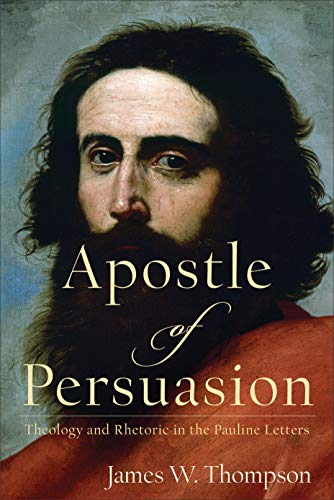Q. I was very pleased to see Chapter 3. Some 30+ years ago I wrote a book entitled Jesus, Paul, and the End of the World comparing the eschatology of Jesus and Paul, and this chapter of yours fills out the picture in a broader way of Paul’s indebtedness to Jesus and the Jerusalem church in his theology and ethics. It seems we have finally gotten well past the legacy of Bousset and Bultmann, and I agree with you that the evidence for Antioch being the origins of early Christian theology doesn’t work. I wonder what you think of the ongoing work of Paul Trebilco? I’ve found it quite insightful.
A. I confess that I have not followed Paul Trebilco on this topic. I continue to read the standard New Testament Theologies (Dunn, Schnelle, etc.). I find that the idea that Paul learned from Antioch is alive and well. Without much evidence, in my opinion.
Q. I was very glad to see the chapter on Paul’s ethos. It appears likely, if we are to believe the lament of the Corinthians (in 2 Cor.) that Paul had an ethos problem, that made him appear weak. I’ve spent a good deal of time trying to figure out what they were referring to, and I think Galatians provides a clue when Paul says ‘you would have plucked out your eyes and given them to me’ right after he says he came to them suffering from some obvious weakness. I can’t believe the reference to eyes is random. So I started looking at other evidence from the undisputed letters. For example, in the vision account Paul mentions from 14 years prior in 2 Cor. 12.1-4 I noticed that he doesn’t say he saw anything. It says he heard things. Obviously, this is apocalyptic language like that found in Revelation only there is no mention of seeing anything! This is passing strange and contrasts with the parallels in Revelation where hearing and seeing is of course part of a visionary experience. Could Paul have had chronic eye problems? Jerry Neyrey long ago point out that the language in Galatians talks about the audience not reacting to Paul with aversion techniques like spitting, which was a reaction to someone thought to cast the evil eye on a person. The eyes were seen not only as windows on a person’s soul, but things that projected light or darkness, blessing or curse. Then I asked myself why exactly does Paul, a literate person need scribes to write his letters, and why in particular does he say at the end of a letter— ‘see with what large letters I write my name’. What kind of person needs a large print edition? What kind of person needs a traveling companion like Luke the physician? I would suggest its someone with eye troubles. Surely that ‘stake in the flesh’ Paul asked the Lord to remove 3 times is a reference to a chronic bothersome physical problem. Perhaps Paul never fully recovered sight after Damascus Road, but had ongoing problems with oozing eyes. And what kind of prophetic seer could he be if he couldn’t see properly? In short, bad eyes would create a major ethos problem for someone claiming to be a seer who could speak about the future and the coming Judge and judgment. Does this theory ring any bells for you?
A. I am reminded of the statement attributed to John Hancock that went something like this: “I will write my name in such big letters that King George can read it without his glasses.” Much is made about Paul’s eyesight, based on the Galatians passage. I understand the passage as consistent with the intensity and even anger of Galatians as a whole. There is not enough there to draw conclusions about Paul’s eyesight, in my opinion. With the Corinthians’ complaint about his weakness, I think his eyesight might have something to do with it. On Paul’s illness mentioned in Galatians 4, I don’t think we have enough information about the nature of it to draw conclusions. There is no indication that it was a chronic illness. It seems that it was a temporary one.













